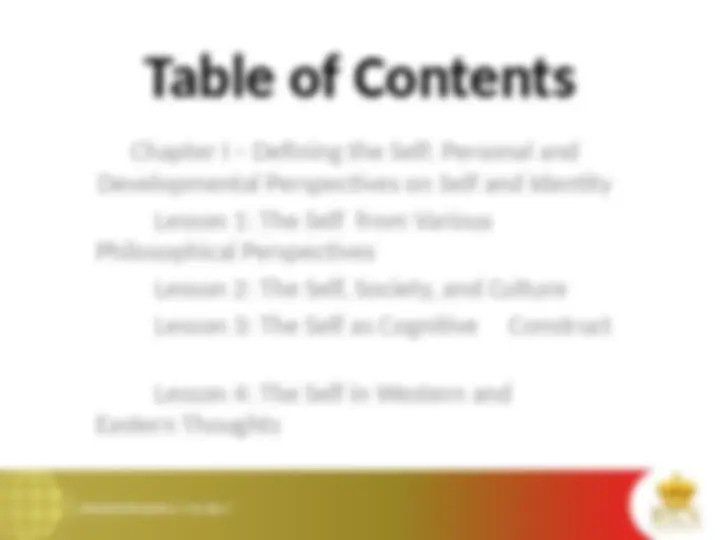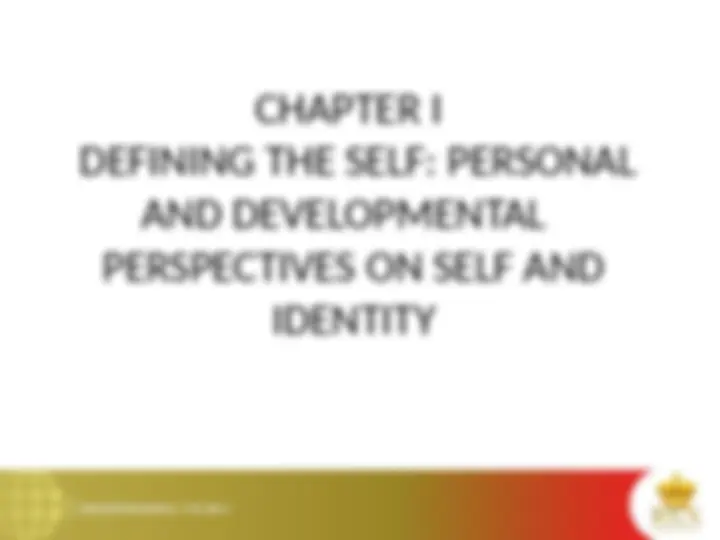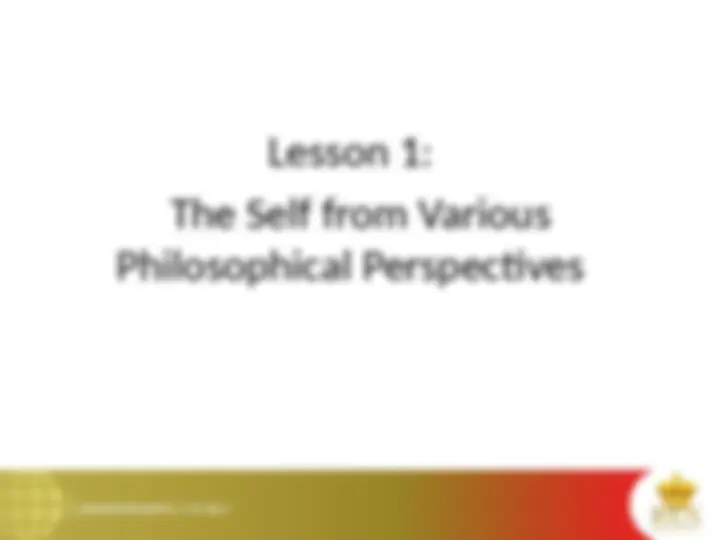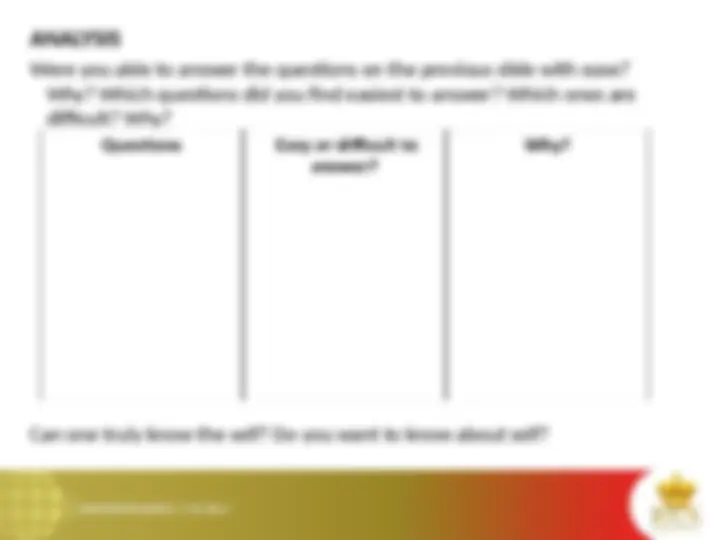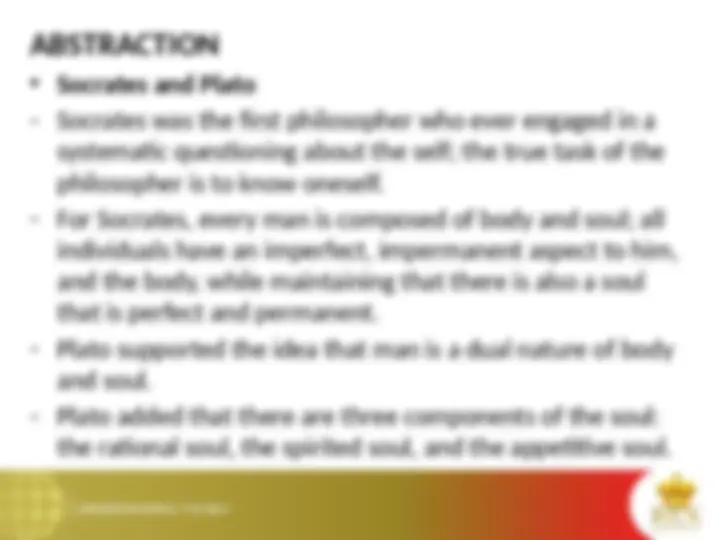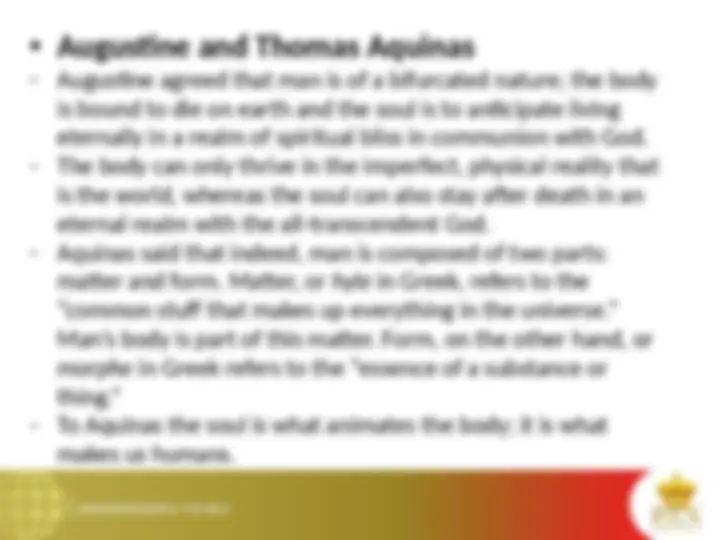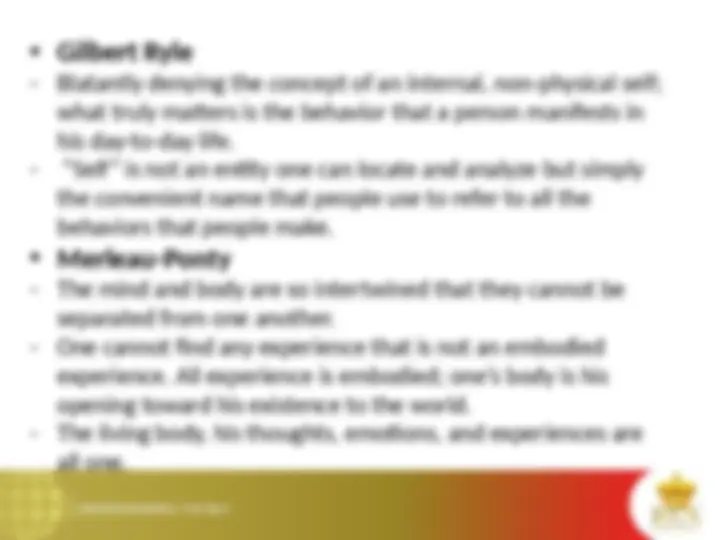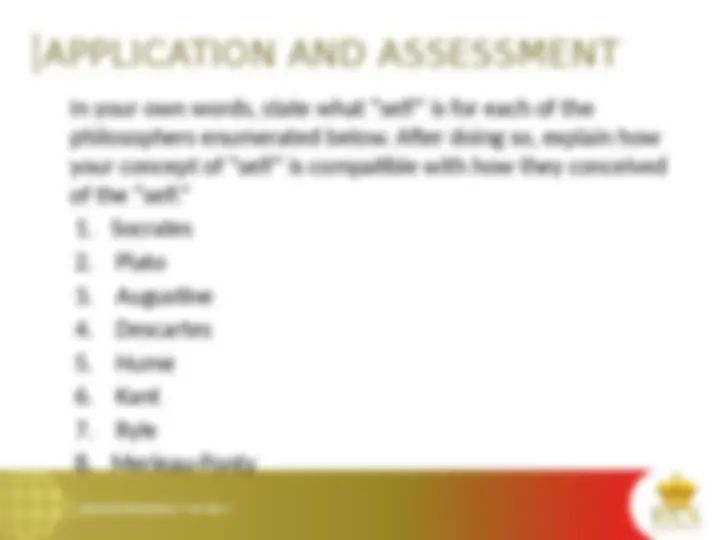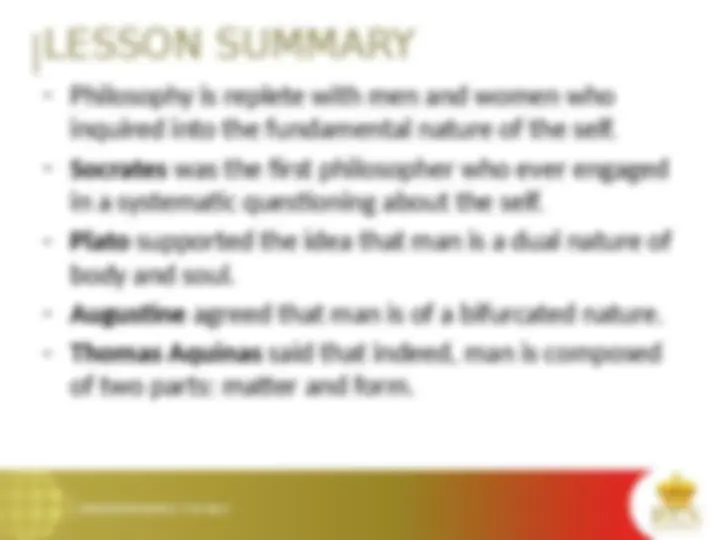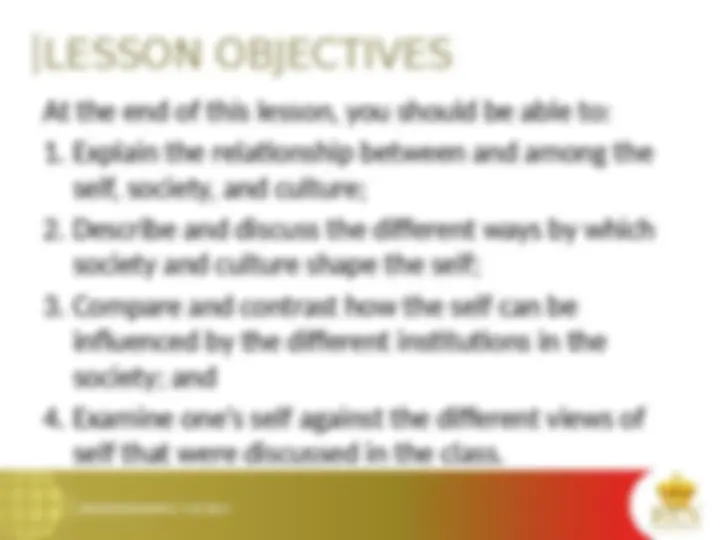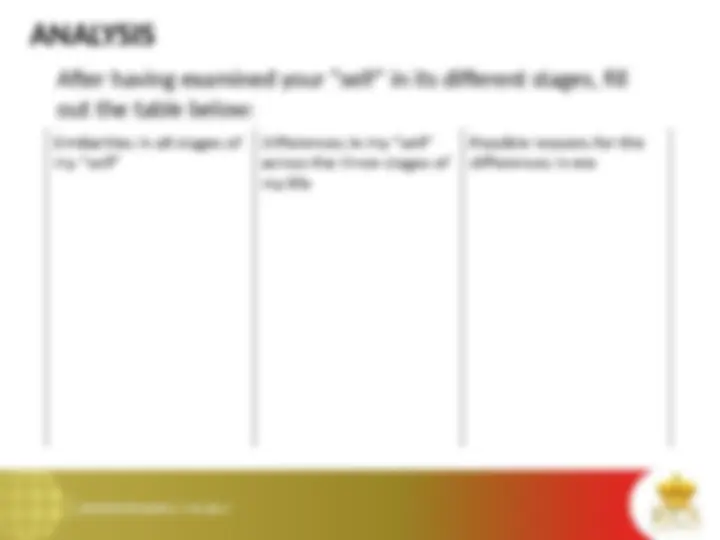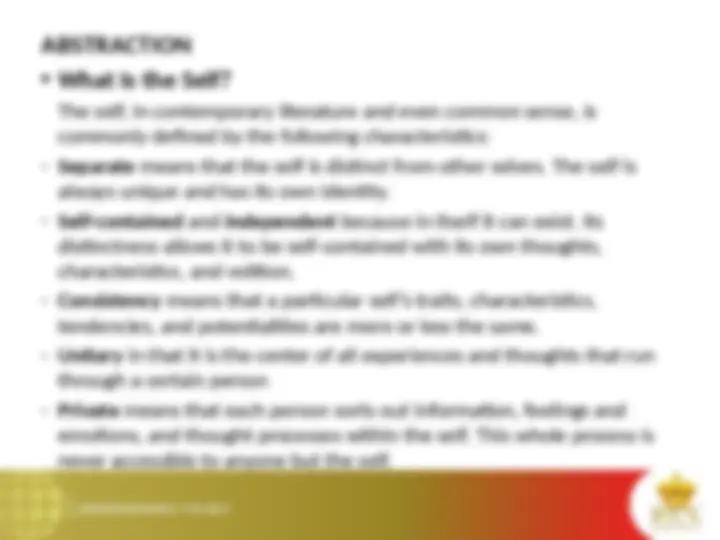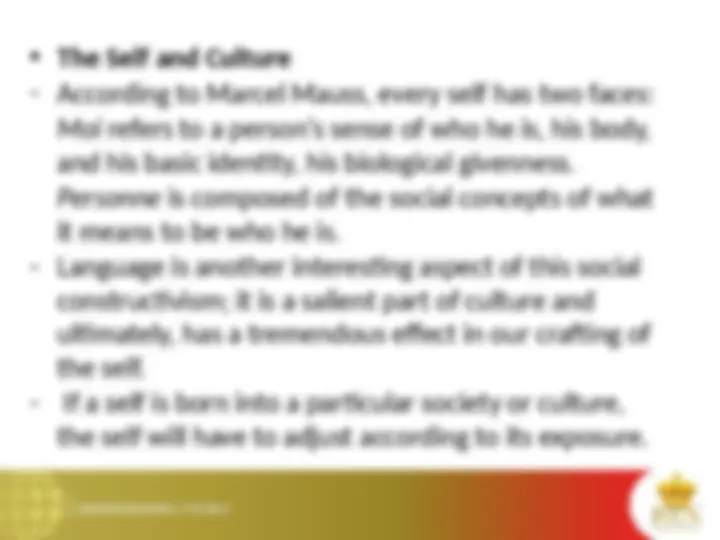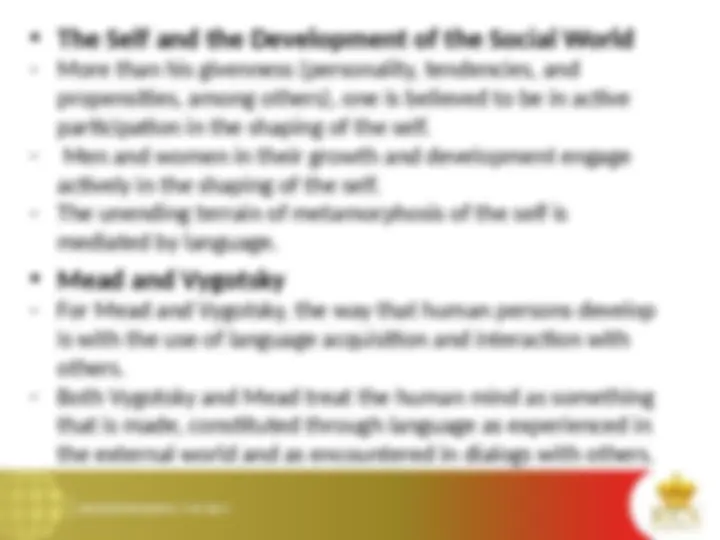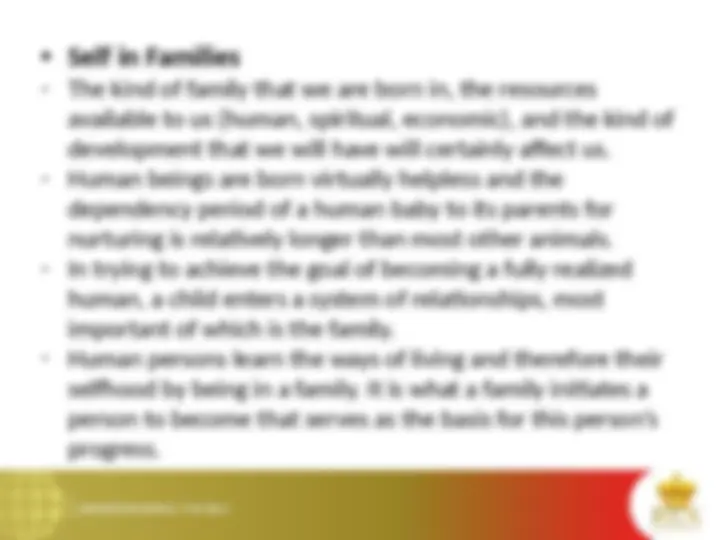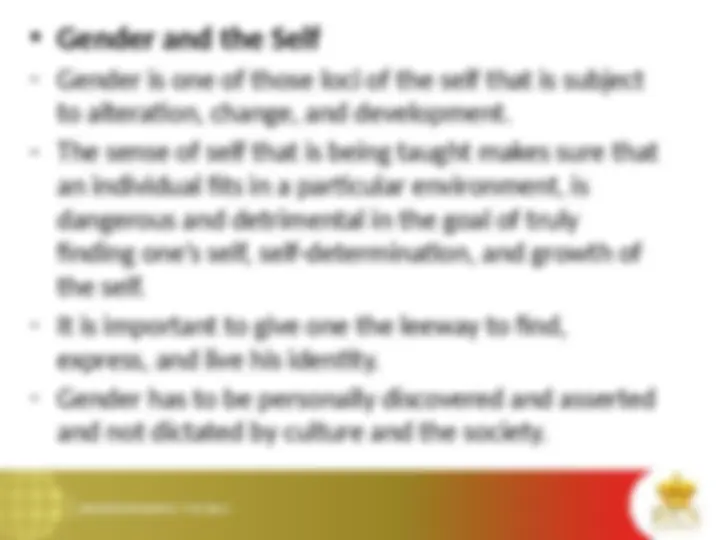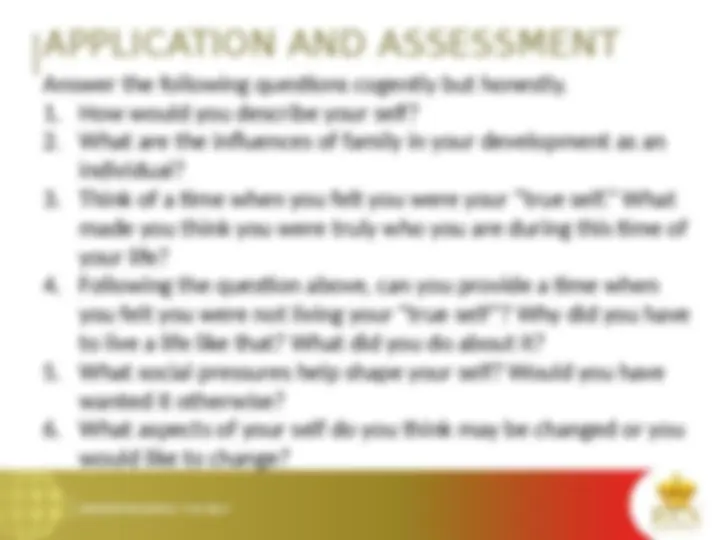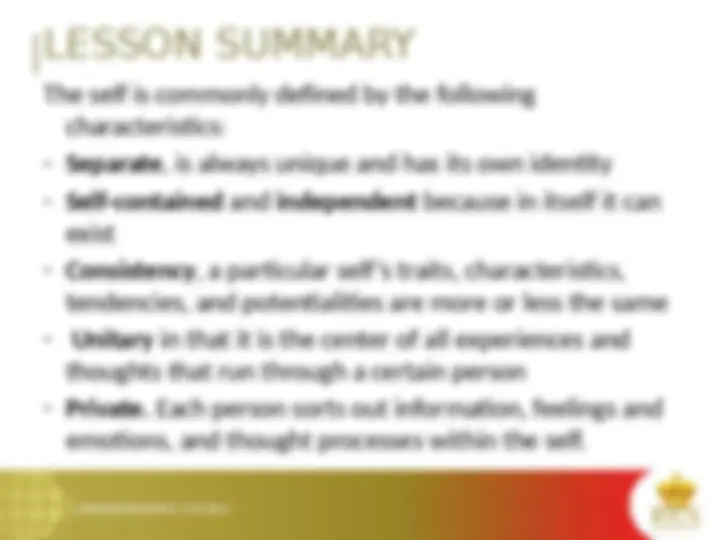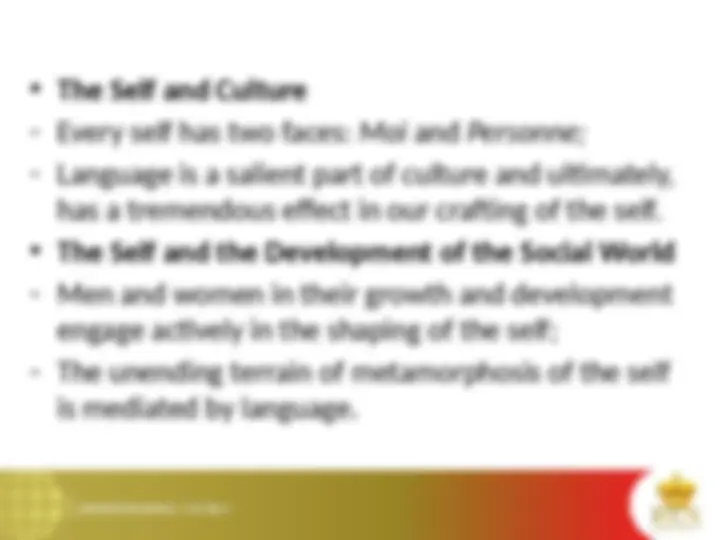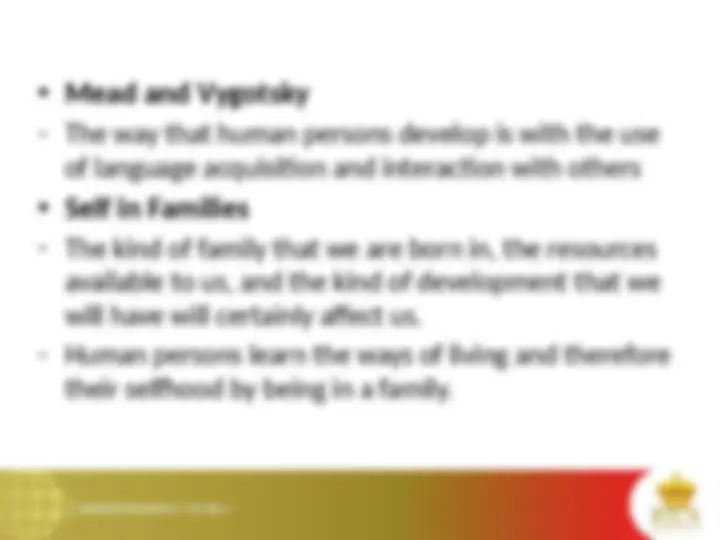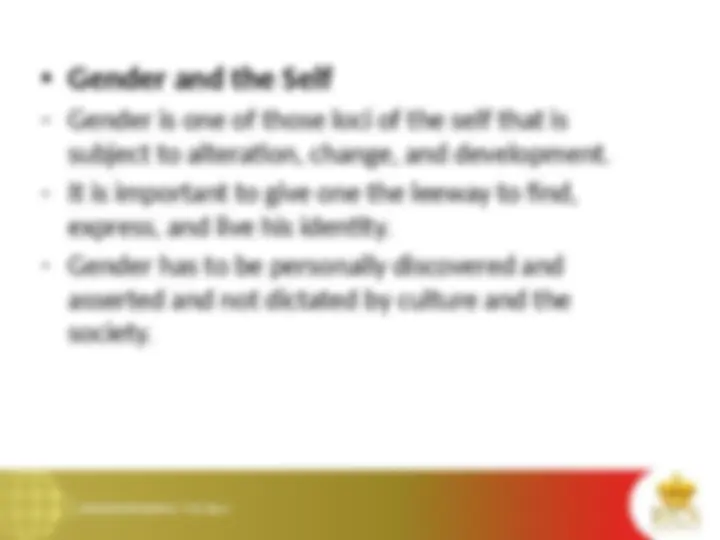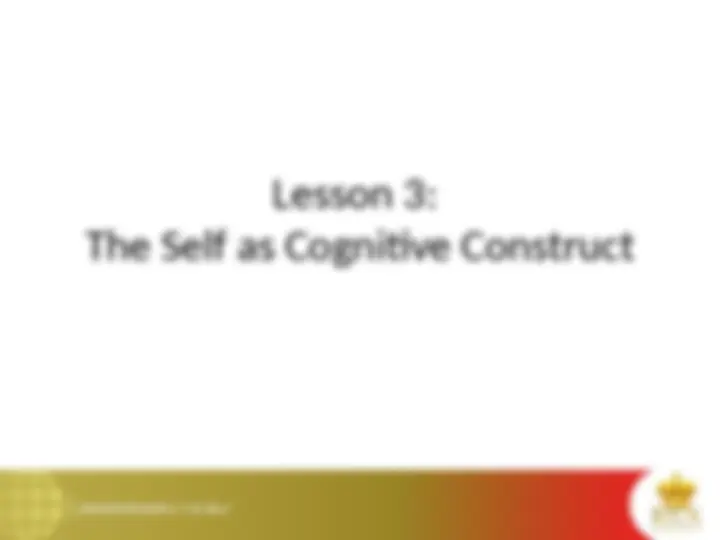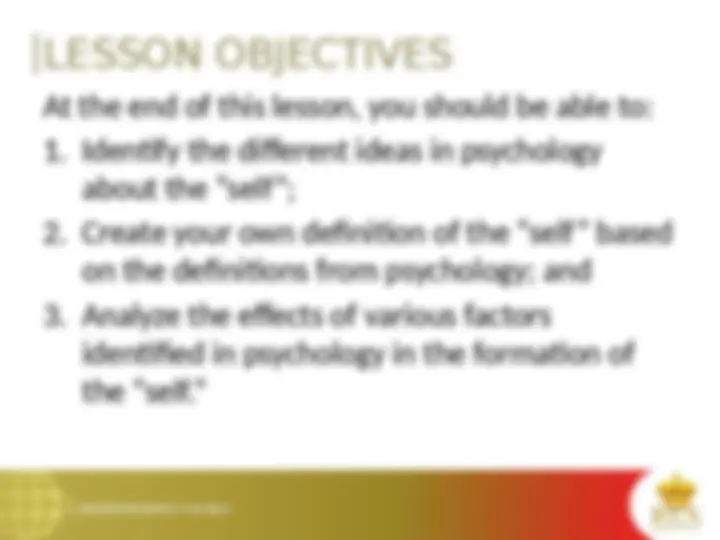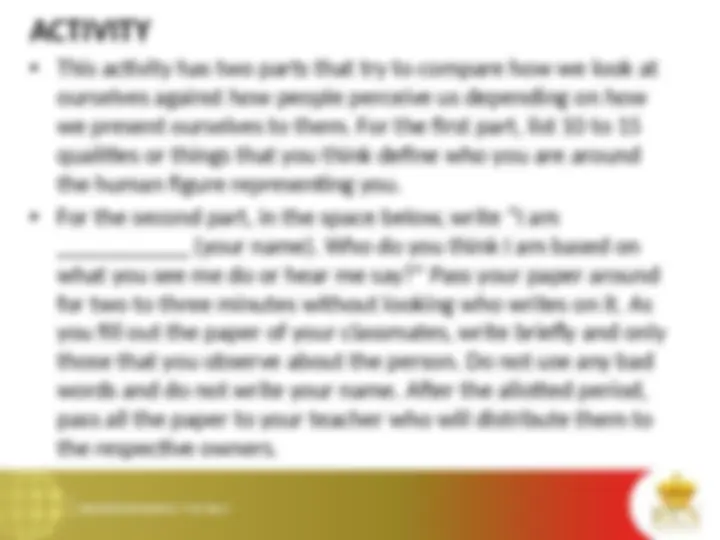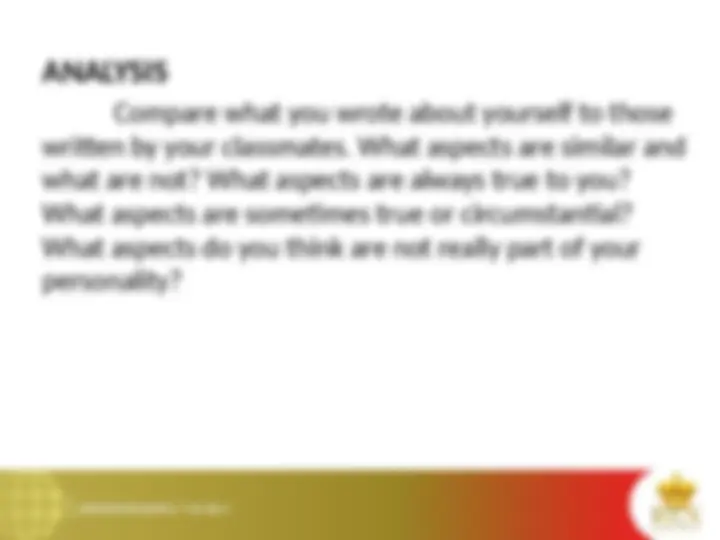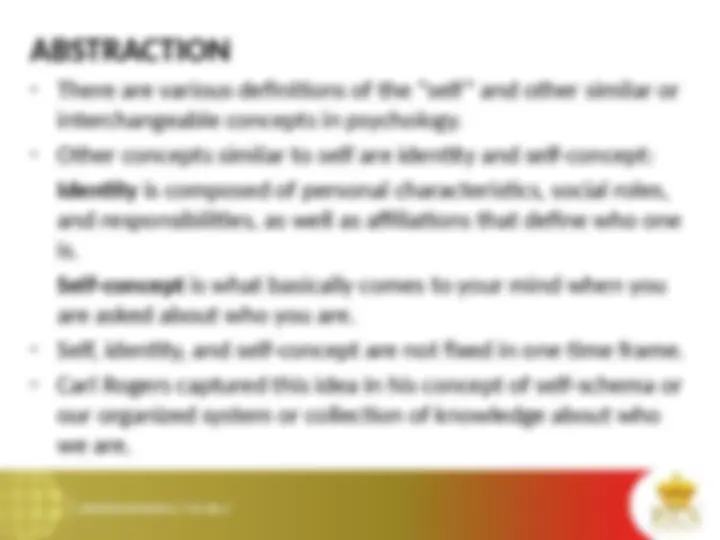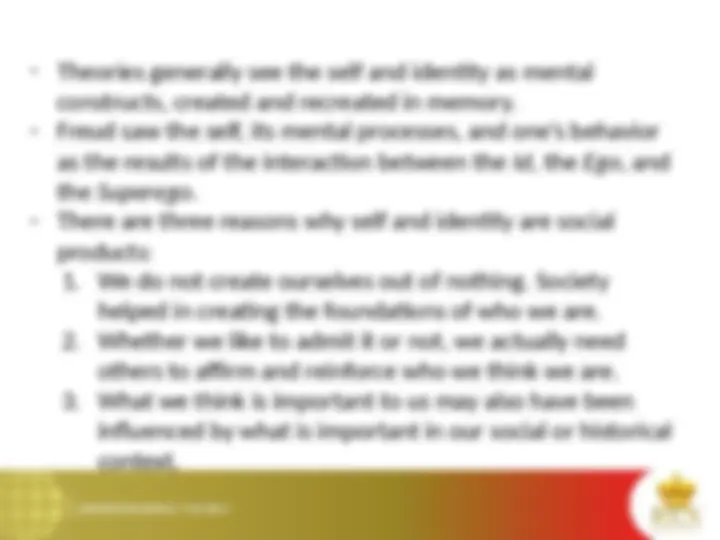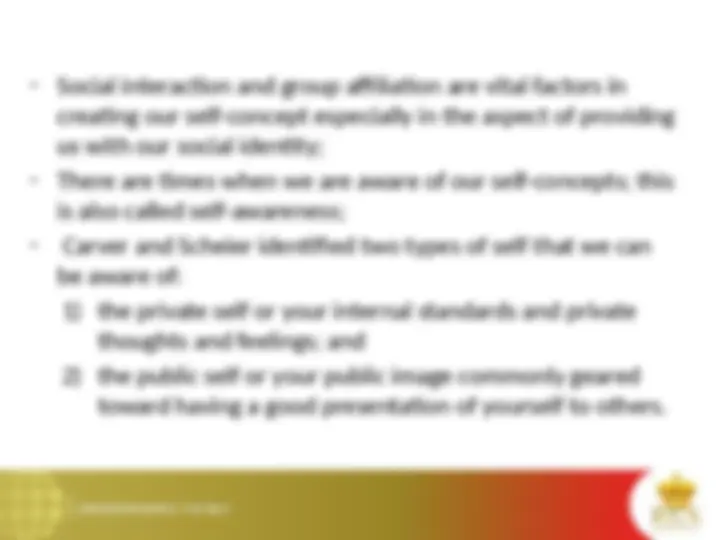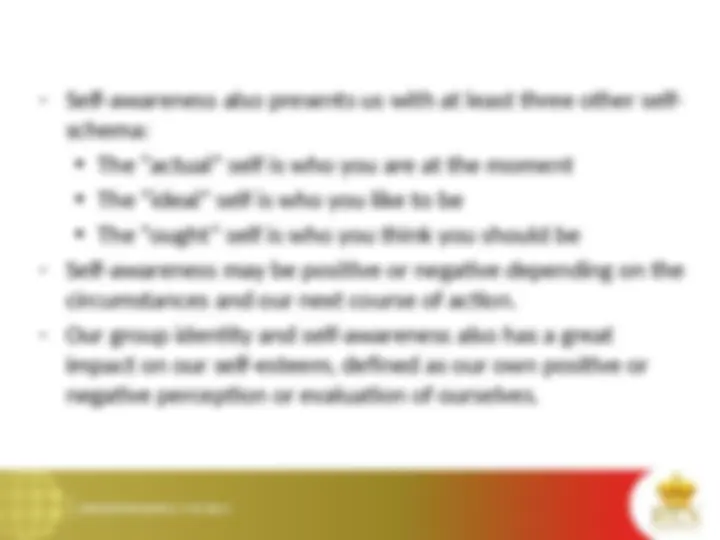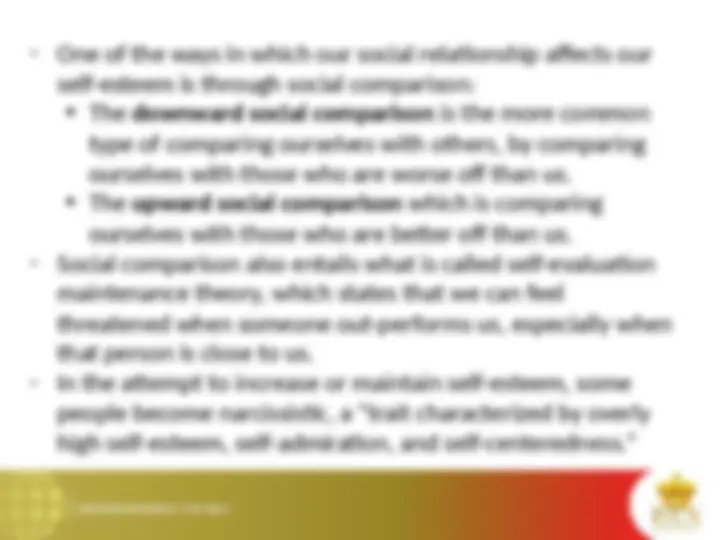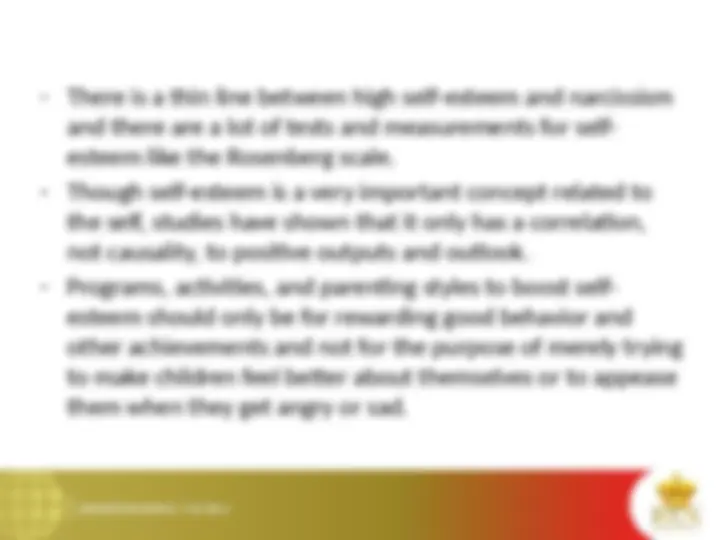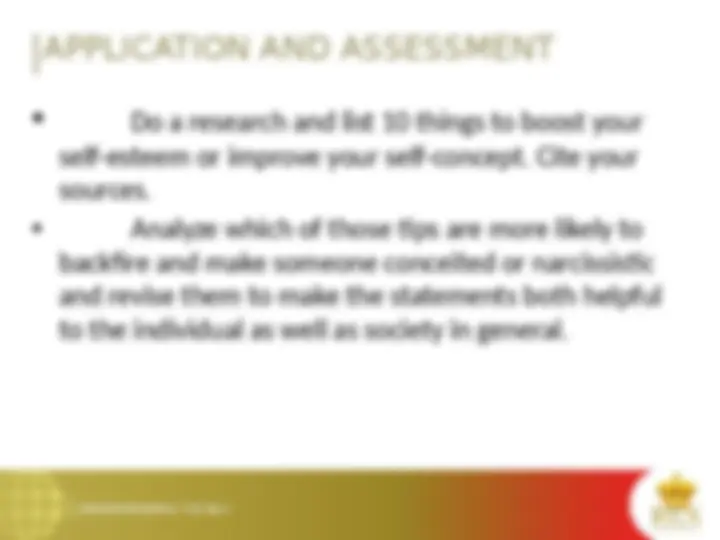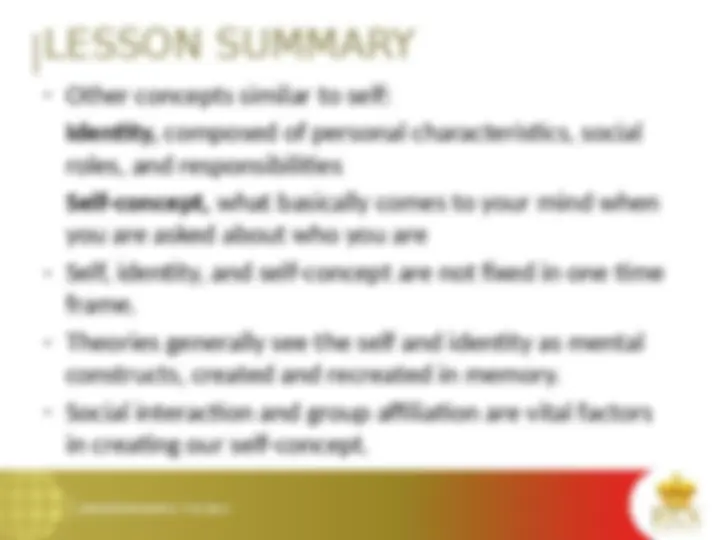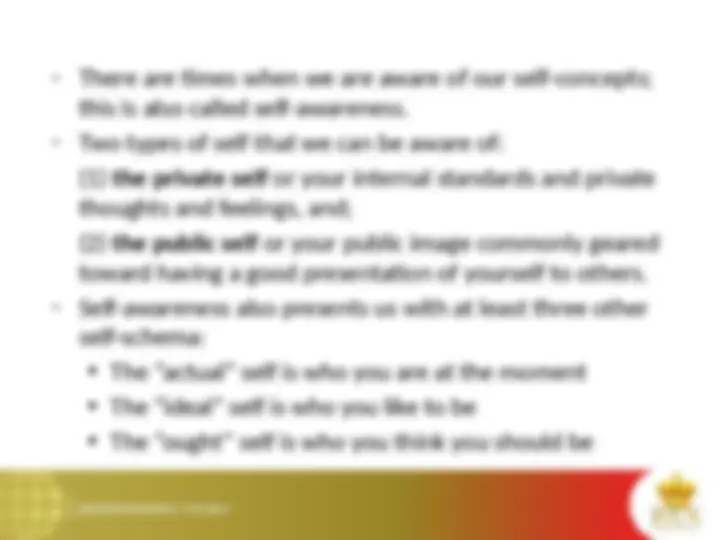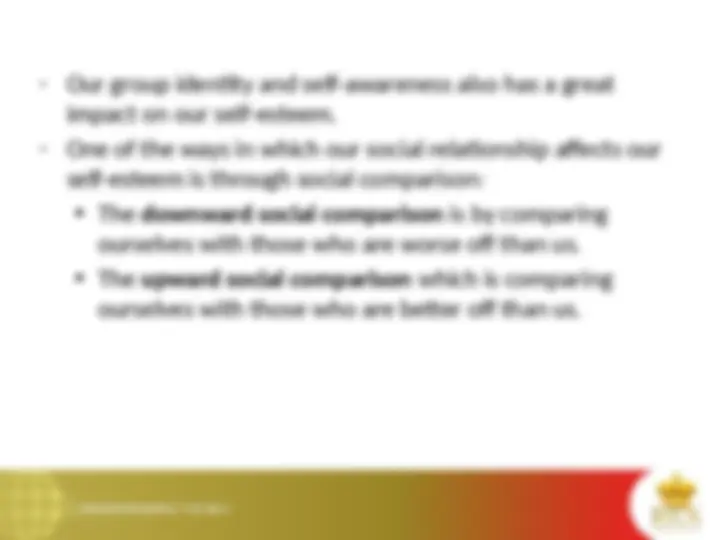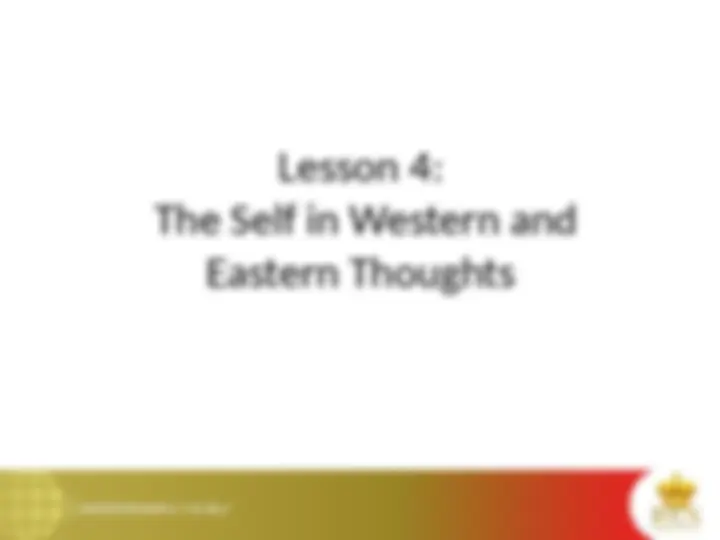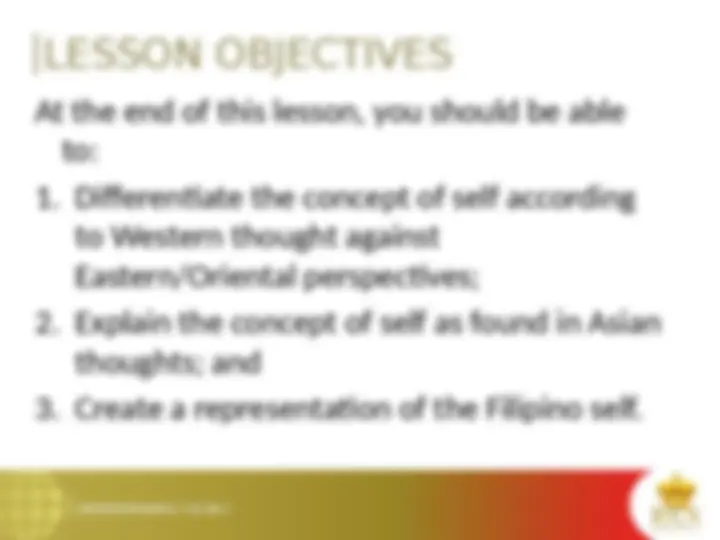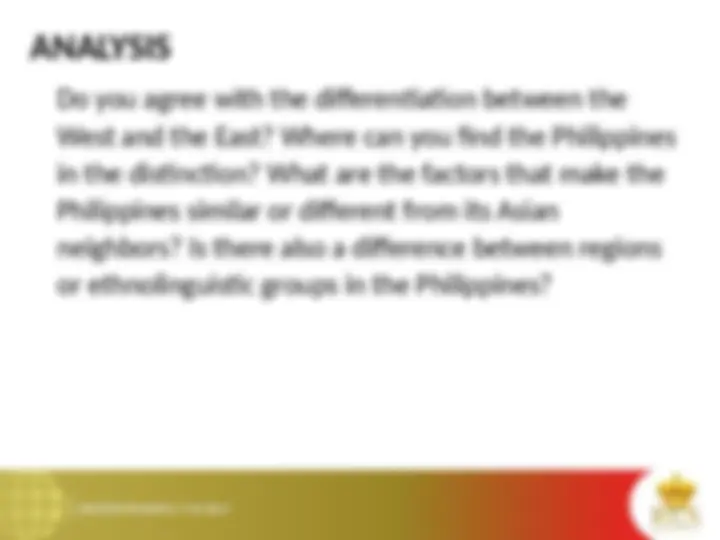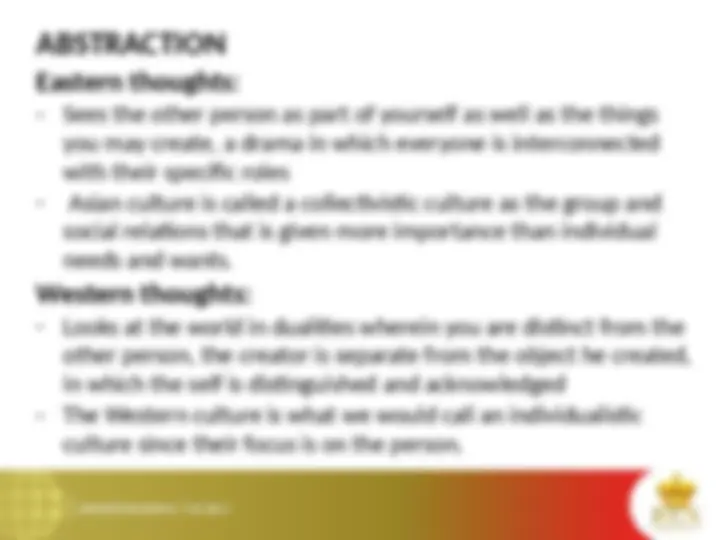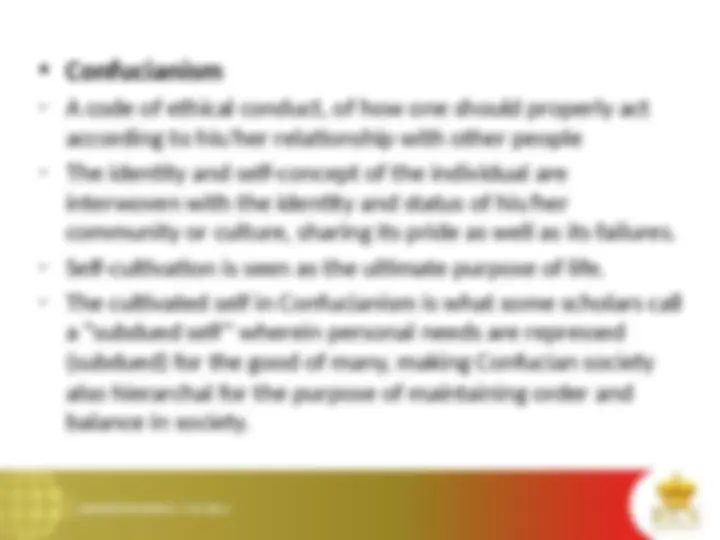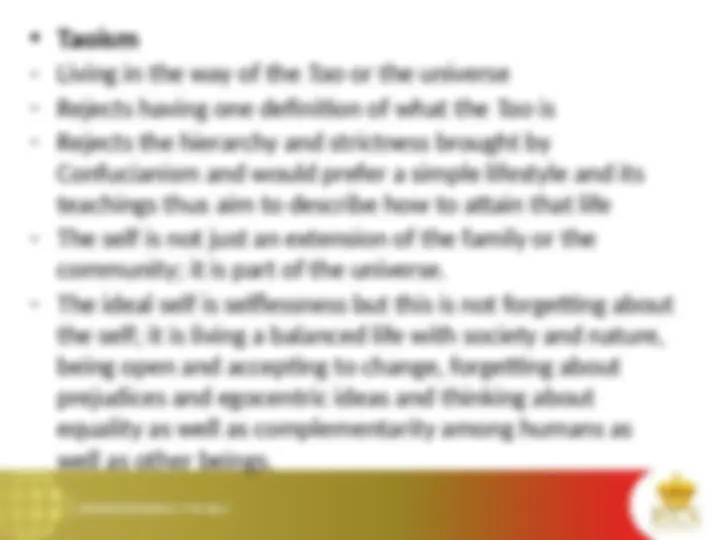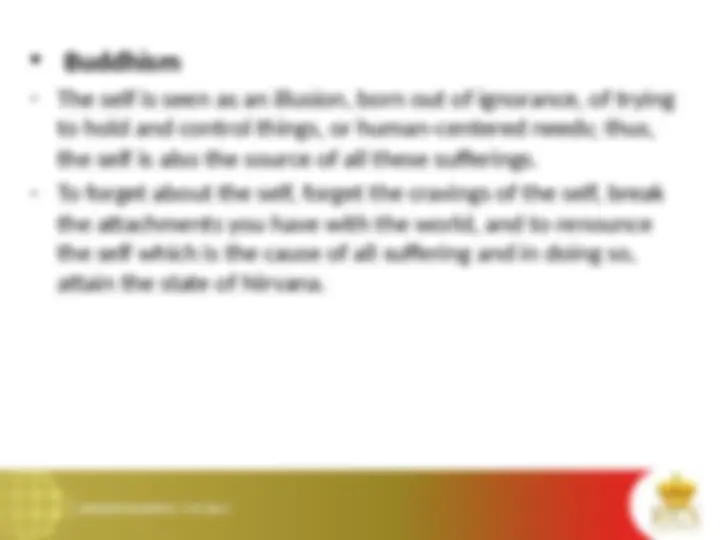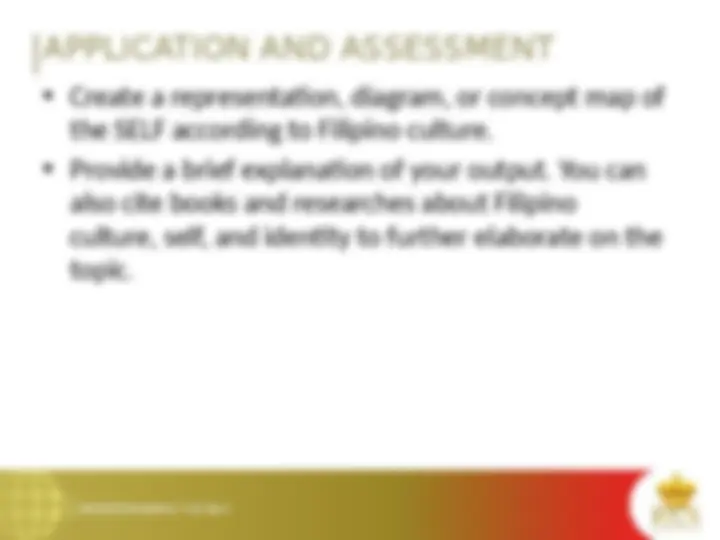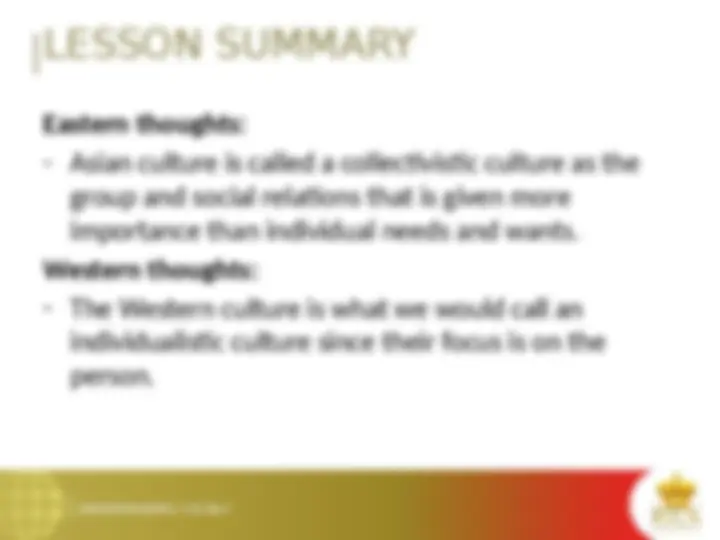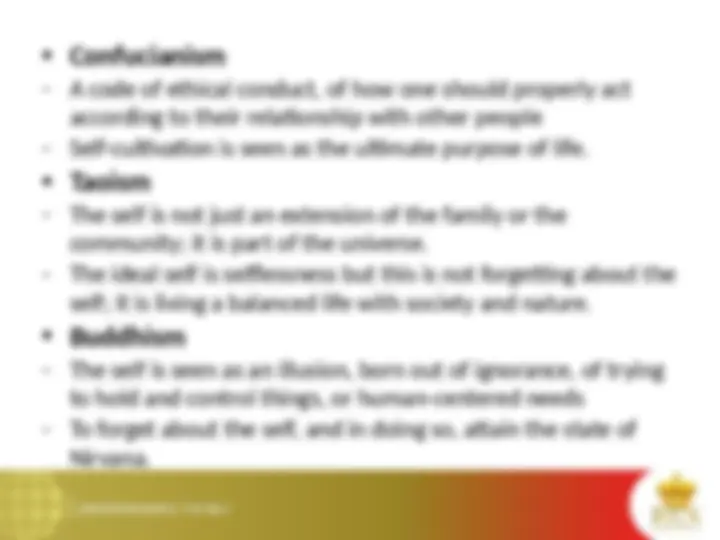Download Understanding the Self: Philosophical and Social Perspectives on Identity and more Slides Psychology in PDF only on Docsity!
UNDERSTANDING
THE SELF
CHAPTER I DEFINING THE SELF: PERSONAL AND DEVELOPMENTAL PERSPECTIVES ON SELF AND IDENTITY
Lesson 1: The Self from Various Philosophical Perspectives
ACTIVITY Answer the following questions about your self as fully and precisely as you can.
- How would you characterize your self?
- What makes you stand out from the rest? What makes your self special?
- How has your self transformed itself?
- How is your self connected to your body?
- How is your self related to other selves?
- What will happen to your self after you die?
ANALYSIS Were you able to answer the questions on the previous slide with ease? Why? Which questions did you find easiest to answer? Which ones are difficult? Why? Can one truly know the self? Do you want to know about self?
- (^) Augustine and Thomas Aquinas
- (^) Augustine agreed that man is of a bifurcated nature; the body is bound to die on earth and the soul is to anticipate living eternally in a realm of spiritual bliss in communion with God.
- (^) The body can only thrive in the imperfect, physical reality that is the world, whereas the soul can also stay after death in an eternal realm with the all-transcendent God.
- (^) Aquinas said that indeed, man is composed of two parts: matter and form. Matter, or hyle in Greek, refers to the “common stuff that makes up everything in the universe.” Man’s body is part of this matter. Form, on the other hand, or morphe in Greek refers to the “essence of a substance or thing.”
- (^) To Aquinas the soul is what animates the body; it is what makes us humans.
- (^) Rene Descartes
- (^) Conceived of the human person as having a body and a
mind
- (^) The body is nothing else but a machine that is attached to
the mind. The human person has it but it is not what makes
man a man. If at all, that is the mind.
- (^) David Hume
- (^) The self is not an entity over and beyond the physical body.
- (^) Men can only attain knowledge by experiencing.
- (^) Self, according to Hume, is simply “a bundle or collection of
different perceptions, which succeed each other with an
inconceivable rapidity, and are in a perpetual flux and
movement.”
- (^) Gilbert Ryle
- (^) Blatantly denying the concept of an internal, non-physical self; what truly matters is the behavior that a person manifests in his day-to-day life.
- (^) “Self” is not an entity one can locate and analyze but simply the convenient name that people use to refer to all the behaviors that people make.
- (^) Merleau-Ponty
- (^) The mind and body are so intertwined that they cannot be separated from one another.
- (^) One cannot find any experience that is not an embodied experience. All experience is embodied; one’s body is his opening toward his existence to the world.
- (^) The living body, his thoughts, emotions, and experiences are all one.
APPLICATION AND ASSESSMENT In your own words, state what “self” is for each of the philosophers enumerated below. After doing so, explain how your concept of “self” is compatible with how they conceived of the “self.”
- Socrates
- Plato
- Augustine
- Descartes
- Hume
- Kant
- Ryle
- Merleau-Ponty
- (^) Rene Descartes conceived of the human person as having a body and a mind.
- (^) David Hume , the self is not an entity over and beyond the physical body
- (^) Immanuel Kant, there is necessarily a mind that organizes the impressions that men get from the external world
- (^) Gilbert Ryle, “self” is not an entity one can locate and analyze
- (^) Merleau-Ponty, the living body, his thoughts, emotions, and experiences are all one
Lesson 2:
The Self, Society, and
Culture
ACTIVITY Paste a picture of you when you were in elementary, in high school, and now that you are in college. Below the picture, list down your salient characteristics that you remember.
ANALYSIS After having examined your “self” in its different stages, fill out the table below:

